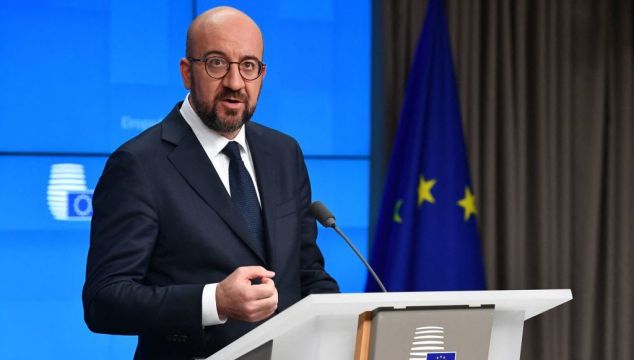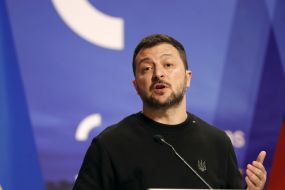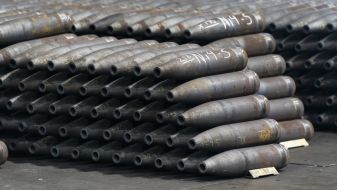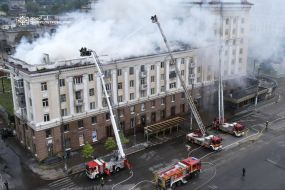European Union leaders struggled on Friday to agree on steps to ease the energy market crunch exacerbated by Russia's invasion of Ukraine, seeking difficult compromises on how to limit the impact for hard-hit consumers of soaring gas and oil prices.
Discussions on the second day of a summit in Brussels were "intense," an EU official said, while another EU source said a "tough" debate on price caps pitted some of the bloc's southern countries against Germany and the Netherlands.
"The negotiations had run aground," a Spanish government source said, explaining that the already tense discussion was halted briefly after Spanish prime minister Pedro Sanchez left the room for "a technical stop, so that the negotiations could get back on track".
The war in Ukraine has pushed energy prices to fresh record highs and prompted the EU to pledge to cut Russian gas use by two-thirds this year, by hiking imports from other countries and boosting renewable energy.
While the southern states want to limit gas price rises to shield poorer households, opponents say this would effectively use public funding to subsidise fossil fuel generation.
"They are blocking options that could benefit other countries that have a different energy mix than theirs," the EU source said of Germany and the Netherlands.
The meeting, which had been due to wind up in the afternoon, looked set to drag into the evening after sources said dinner had been ordered for the leaders. However, one European source said there was "goodwill on both sides" and intensive efforts were being made to find a compromise with Spain.
Earlier on Friday, Belgian prime minister Alexander De Croo had backed the proposals by the southern European countries.
"The EU is not only about big principles, big meetings and American presidents," De Croo told reporters earlier after US president Joe Biden, who joined the first day of the summit, committed to helping Europe with more LNG deliveries.
"Today is about the everyday issues of the people and that is the electricity and gas invoice of the people, and that's the impact we see today of that war in Ukraine," he said.
"We are at war and in a war you need to take extraordinary measures."
Russia supplies 40 per cent of the gas the EU needs for heating and power generation and more than a quarter of its oil imports.
Dependent on Russia
There appeared to be more agreement among the 27 on a plan for joint purchases of gas to tame prices.
"There is a solution," Slovenian prime minister Janez Jansa said before the talks.
"It is common European purchases, common logistics, common building of gas storage capacity."
The European Commission has said it is ready to lead negotiations on pooling demand and seeking gas before next winter, following a similar model through which the bloc bought Covid-19 vaccines on behalf of member states.
The EU remained divided over whether to ban Russian oil and gas imports in addition to the slew of sanctions it has imposed on Moscow since the invasion a month ago.
Moscow calls its actions in Ukraine a "special military operation" to demilitarise and "denazify" Ukraine. Kyiv and the West say Putin launched an unprovoked war.
Europe's dependency on energy from Russia means the question of whether to impose an embargo, as the United States has done, is economically risky, and no decision was expected on Friday.
Germany, Hungary and Austria were among the most reticent about imposing a ban on Russian oil and gas.
It was unclear if a common position would emerge on Russia's demand this week that "unfriendly" countries must use roubles to pay for its oil and gas, and if the Commission would get a mandate to tackle that.
The Kremlin's demand poses a dilemma for countries reliant on Russian energy because, by agreeing to it, they would be shoring up the rouble and channelling hard currency into Moscow - but refusal could mean their energy supplies dry up." - Reuters







